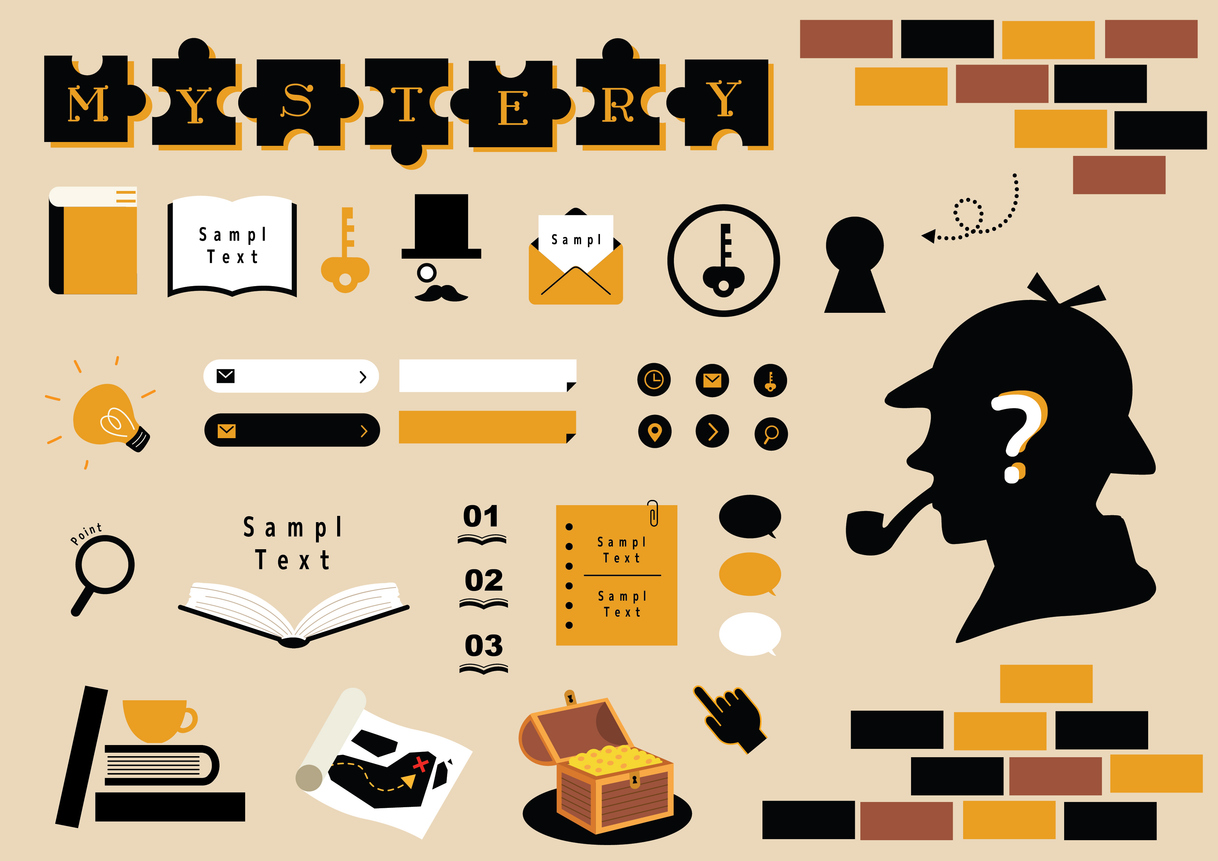2025-05-05
Escape Nurse: the pedagogical mission
Public Health and Social Medicine
#Pedagogy #EscapeGame #EscapeRoom #NursingCare
#Training
The teaching of nursing science faces a persistent paradox. While professional training expectations are increasingly evolving toward complex and cross-disciplinary competencies, traditional pedagogical methods struggle to meet these demands. Lectures and standardized assessments demonstrate significant limitations in terms of student engagement, knowledge retention, and—most critically—the development of key skills such as communication, stress management, team-based problem-solving, and interprofessional collaboration.
In this context, educational escape rooms are gradually establishing themselves as an innovative pedagogical approach. By offering immersive, game-based scenarios rooted in realistic clinical challenges, these activities promote active participation. Each session leverages game mechanics to stimulate critical thinking, social interaction, and decision-making autonomy—all within a dynamic, time-constrained environment. However, scientific evidence supporting the educational effectiveness of escape rooms remains limited. This study was therefore initiated to characterize the measurable effects of escape rooms.
Nine studies including a total of 1,549 participants—nursing students and professional nurses—were selected. Three essential dimensions of nursing education were studied in order to scientifically assess the pedagogical effectiveness of escape rooms: the acquisition of technical knowledge—anatomy, patient safety, disaster preparedness, or pain management—the development of interprofessional skills, and the satisfaction perceived by learners.
By identifying the benefits, limitations, and biases associated with this method, the study aims to provide concrete recommendations for a structured and effective integration of escape rooms into contemporary nursing curricula.
The results show a notable improvement in technical knowledge in the groups that received an escape room intervention. Several studies highlighted significant differences between experimental and control groups, particularly in the areas of anatomy and perinatal care, confirming the effectiveness of these tools in terms of knowledge retention.
However, the impact on interprofessional skills remains mixed. While some tools like the OIPC (Observed Interprofessional Collaboration) indicate progress, others, notably the ISVS-21 (Interprofessional Socialization and Valuing Scale), do not show statistically significant changes. The observed level of heterogeneity highlights substantial variability among the studies, suggesting that context, game design, or participant profile significantly influence the results.
Lastly, user experience assessments reveal strong engagement with this learning format. Instruments such as GAMEX and GFEQ report high levels of satisfaction, immersion, creativity, and motivation among participants involved in escape room activities. These results highlight the pedagogical value of immersive approaches, although a more standardized structure is needed to maximize their educational impact.
Nursing education is increasingly confronted with a growing paradox. The competencies required are ever more interdisciplinary, complex, and grounded in real clinical situations, while dominant teaching methods fail to foster active student engagement. These approaches fall short in both knowledge retention and the development of critical skills such as communication, stress management, group problem-solving, and interprofessional collaboration. To address these challenges, escape room-based learning emerges as an innovative solution.
This study aimed to evaluate the pedagogical impact of game-based tools within nursing programs. The results suggest a genuine benefit in terms of cognitive learning and strong participant engagement in terms of experience and satisfaction. However, the effectiveness of escape rooms on collaborative skills remains uncertain and varies between studies.
Further research is required to strengthen the validity of the results by providing more robust and generalizable data. This necessitates large-scale, randomized, multicenter studies with long-term follow-up. The current variability in protocols, the lack of standardized evaluation tools, and sampling-related biases limit the current conclusions. These methodological weaknesses call for caution and highlight the need to further structure this field of study. Implementing standardized game formats, validated analysis criteria, and longitudinal measurements will be essential to confirm the role of escape rooms as an effective and sustainable educational tool in modern nursing training.
The teaching of nursing science faces a persistent paradox. While professional training expectations are increasingly evolving toward complex and cross-disciplinary competencies, traditional pedagogical methods struggle to meet these demands. Lectures and standardized assessments demonstrate significant limitations in terms of student engagement, knowledge retention, and—most critically—the development of key skills such as communication, stress management, team-based problem-solving, and interprofessional collaboration.
In this context, educational escape rooms are gradually establishing themselves as an innovative pedagogical approach. By offering immersive, game-based scenarios rooted in realistic clinical challenges, these activities promote active participation. Each session leverages game mechanics to stimulate critical thinking, social interaction, and decision-making autonomy—all within a dynamic, time-constrained environment. However, scientific evidence supporting the educational effectiveness of escape rooms remains limited. This study was therefore initiated to characterize the measurable effects of escape rooms.
Escape room: gimmick or learning lever?
Nine studies including a total of 1,549 participants—nursing students and professional nurses—were selected. Three essential dimensions of nursing education were studied in order to scientifically assess the pedagogical effectiveness of escape rooms: the acquisition of technical knowledge—anatomy, patient safety, disaster preparedness, or pain management—the development of interprofessional skills, and the satisfaction perceived by learners.
By identifying the benefits, limitations, and biases associated with this method, the study aims to provide concrete recommendations for a structured and effective integration of escape rooms into contemporary nursing curricula.
The results show a notable improvement in technical knowledge in the groups that received an escape room intervention. Several studies highlighted significant differences between experimental and control groups, particularly in the areas of anatomy and perinatal care, confirming the effectiveness of these tools in terms of knowledge retention.
However, the impact on interprofessional skills remains mixed. While some tools like the OIPC (Observed Interprofessional Collaboration) indicate progress, others, notably the ISVS-21 (Interprofessional Socialization and Valuing Scale), do not show statistically significant changes. The observed level of heterogeneity highlights substantial variability among the studies, suggesting that context, game design, or participant profile significantly influence the results.
Lastly, user experience assessments reveal strong engagement with this learning format. Instruments such as GAMEX and GFEQ report high levels of satisfaction, immersion, creativity, and motivation among participants involved in escape room activities. These results highlight the pedagogical value of immersive approaches, although a more standardized structure is needed to maximize their educational impact.
Beyond the game
Nursing education is increasingly confronted with a growing paradox. The competencies required are ever more interdisciplinary, complex, and grounded in real clinical situations, while dominant teaching methods fail to foster active student engagement. These approaches fall short in both knowledge retention and the development of critical skills such as communication, stress management, group problem-solving, and interprofessional collaboration. To address these challenges, escape room-based learning emerges as an innovative solution.
This study aimed to evaluate the pedagogical impact of game-based tools within nursing programs. The results suggest a genuine benefit in terms of cognitive learning and strong participant engagement in terms of experience and satisfaction. However, the effectiveness of escape rooms on collaborative skills remains uncertain and varies between studies.
Further research is required to strengthen the validity of the results by providing more robust and generalizable data. This necessitates large-scale, randomized, multicenter studies with long-term follow-up. The current variability in protocols, the lack of standardized evaluation tools, and sampling-related biases limit the current conclusions. These methodological weaknesses call for caution and highlight the need to further structure this field of study. Implementing standardized game formats, validated analysis criteria, and longitudinal measurements will be essential to confirm the role of escape rooms as an effective and sustainable educational tool in modern nursing training.
Read more: Can VR tip the balance?

Last press reviews
Leprosy: a disease still beyond control

By Ana Espino | Published on January 22, 2026 | 3 min read...
Parental alcohol intoxication: the hidden impact on children’s mental health

By Carolina Lima | Published on January 19, 2026 | 3 min read
Obesity: when the kidneys become overwhelmed

By Ana Espino | Published on January 20, 2026 | 3 min read...